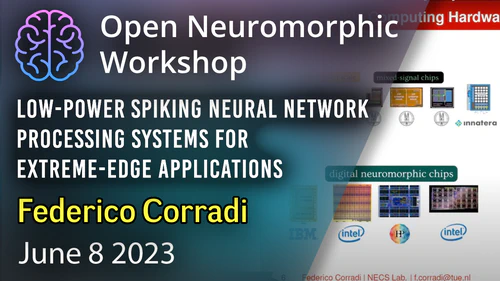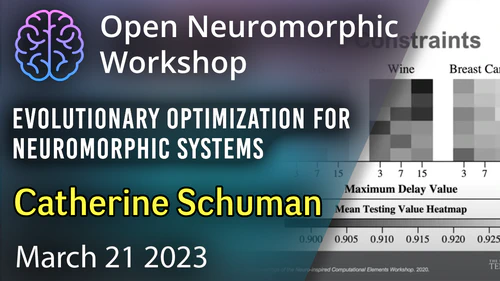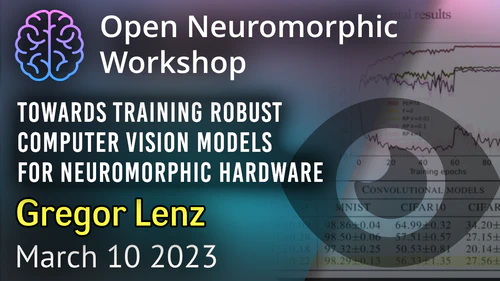The Vision Zero Program’s purpose is to reduce traffic-related fatalities and serious injuries while promoting equitable, safe, and healthy mobility for all. Ultimately, the challenge is to detect pedestrians during the day and especially at night in order to implement safety measures.
The current study introduces an award-winning low-power solution employing neuromorphic visual sensing and hybrid neuro-statistical processing developed by the Technische Hochschule Nürnberg team for the TinyML Vision Zero San Jose Competition. The solution proposes a novel neuromorphic edge fusion of spiking neural networks and event-based expectation maximization for the detection and tracking of pedestrians and bicyclists.
We provide a deployment-ready evaluation of the detection performance along with robustness, energy footprint, and weatherization while emphasizing the advantages of the neuro-statistical edge solution and its city-level scaling capabilities.
Links from the talk
Upcoming Workshops
No workshops are currently scheduled. Check back soon for new events!
Are you an expert in a neuromorphic topic? We invite you to share your knowledge with our community. Hosting a workshop is a great way to engage with peers and share your work.
About the Speaker
Dr. Axenie is Professor of Artificial Intelligence and Research Group Leader in Cognitive Neurocomputing at the Technische Hochschule Nürnberg Georg Simon Ohm in Germany.
After earning a Dr. Eng. Sc. in Neuroscience and Robotics from the Technical University of Munich in 2016, Dr. Axenie joined the Huawei Research Center in Munich. Between 2017 and 2023 Dr. Axenie was Staff Research Engineer with Huawei Research Center. At the same time, Dr. Axenie was the Principal Investigator and Head of the Audi Konfuzius-Institut Ingolstadt Laboratory at the Technische Hochschule Ingolstadt.
Dr. Axenie is a seasoned researcher with more than 15 years of academic research and more than 10 years of industrial research experience. His research was disseminated in more than 50 peer-reviewed publications and more than 10 patents. Currently Dr. Axenie focuses on sustainable and efficient deployment of intelligent algorithms for sensor fusion and closed-loop control.
Inspired? Share your work.
Share your expertise with the community by speaking at a workshop, student talk, or hacking hour. It’s a great way to get feedback and help others learn.


